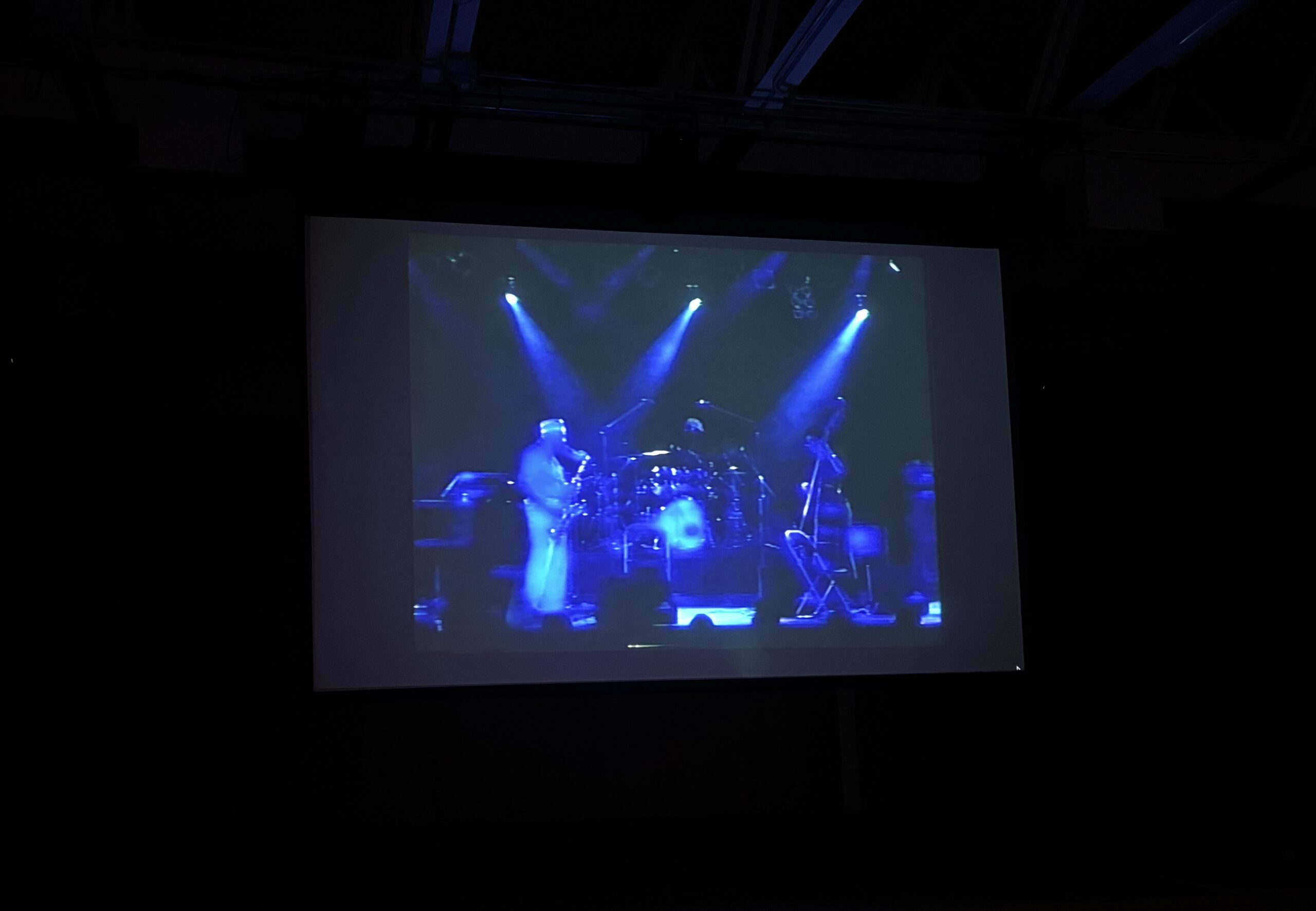By: Leonardo Fontane
CHICAGO–On Saturday March 30th Asian Improv aRts Midwest and Experimental Sound Studio (ESS) teamed up to present a listening party of recently digitized tapes from the Fred Anderson Trio at the Velvet lounge circa 1998-2001.
This event was a way to present a viewing of recently found footage from the 1998 Fred Anderson Trio’s performance in Osaka Japan. Long standing bassist of the Anderson Trio and founder of AIRMW, Tatsu Aoki, was present for this event. Even being able to bring out the bass he used for the performance.
Part of what made this screening so special is the fact that both Aoki and Fred Anderson have had such an impact on music in Chicago. Anderson was an esteemed player who acted as a mentor for many musicians in the city.
He founded a club called, “Velvet Lounge” which acted as a space to allow for young players to stretch their wings and play different styles and ideas without shame. They could also hear Fred’s group put on stunning sets weekly.
Aoki is also an extremely well-respected artist not just for his incredible playing ability but also for his work uplifting Asian arts in the city A beautiful part of Aoki’s attendance was his ability to give fresh insight into the history of the Osaka performance experience.
The concert itself was programmed and set up by fellow musician, Yoko Noge, Noge was able to coordinate the travel of over 60 Chicago musicians to Japan for a multi day festival. Some of the festival’s activities included musicians visiting local schools to teach and interact with students as well as multiple large showcases.
Aoki explained how the Anderson Trio attracted fans from all over Japan with even people from Tokyo taking bullet trains out to Osaka for the performance. After Aoki’s brief history of the event the viewing of the performance started, and with it the audience was whisked back in time to a truly breathtaking set of music.
Starting with a driving Latin feel that was bolstered by Aoki and drummer Hamid Drake’s extremely strong rhythmic feel. An enticing instrumentation of just bass drums and sax allowed this set to have a looser feel without a chordal instrument to set as many boundaries to the sound.
As a result, Anderson’s playing in the first half of the set was able to effortlessly stretch from sections of very sparse phrasing with great deals of space into large tightly knit chromatic lines.
Through minutes of open space Anderson cleverly played off the accompaniment from Drake, each able to truly build and carry a complex conversation over the backbone of Aoki’s playing.
After a nearly twenty-minute experience from the trio Drake closed the first half with a hard-hitting solo filled with complex rudiments while maintaining an unwavering groove.
The second half of this set was started by a moving Aoki bassline which set a strong feel into your body. It was here in the performance where one viewing this recording could understand the attraction of the Trio for so many people in Japan.
The ability Anderson, Aoki, and Drake possessed as one playing unit presented itself as a reason to pay attention to the music that was being born in Chicago. One living entity of sound, expression, and emotion the Trio’s set contained an essence only those who fully understand their fellow bandmates can achieve.
After another beautifully crafted solo from Anderson the set ended with a very large round of applause in Osaka. Being able to experience this legendary performance from such important Chicago figures highlights exactly why the preservation efforts from ESS to digitize tapes is so important.
Both Tatsu and the viewing gave key information on the late 90s scene of jazz in Chicago, as well as leaving a listener with much to think about.
The work done by AIRMW is also a testament to this music culture as they provide a space for these events that must be uplifted so that every person may experience music’s magic.
###
